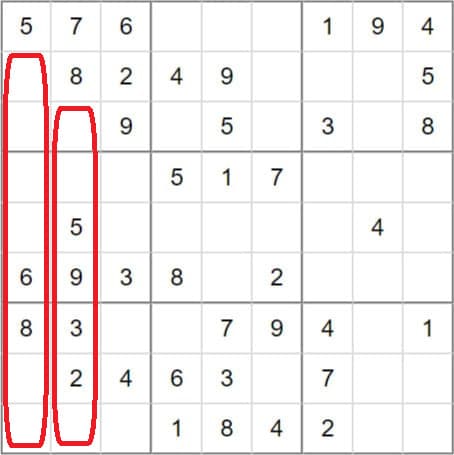The Humble Beginnings of Sudoku
Sudoku, a game that feels as timeless as the sunrise, has an origin story far more recent than one might assume. Born in the late 20th century and popularized globally in the 2000s, Sudoku began as a niche pastime but soon evolved into a global phenomenon. Its meteoric rise was fueled by its blend of simplicity and intellectual challenge, appealing to people from all walks of life.
Explore how to play sudoku online with easy access to free sudoku games.
Today, with the rise of the internet and mobile technology, Sudoku has found a new home online. Free web-based Sudoku games are accessible to anyone with an internet connection, creating an environment where millions of players interact daily. But beyond the surface of number grids and mental workouts lies a deeper sociological narrative—one that reveals how this unassuming game is shaping societies, particularly in tech-forward countries like Canada.
The Sociological Appeal of Sudoku
At its core, Sudoku thrives on universal principles: structure, logic, and order. In a world often defined by chaos and unpredictability, these qualities offer a kind of solace. For Canadians, known for their balanced and measured approach to life, Sudoku resonates on a cultural level. The game’s structured nature mirrors Canadian societal values like fairness, organization, and respect for rules.
From a sociological perspective, Sudoku serves as both a mirror and a mold. It reflects society’s growing need for mindfulness and focus, while also shaping behaviors that align with these values. But what makes online Sudoku particularly fascinating is how it transcends traditional boundaries, bringing together players from diverse backgrounds and cultures into a shared virtual space.
A Canadian Perspective on Online Sudoku
In Canada, a country known for its multiculturalism and technological innovation, online Sudoku has become more than just a pastime—it’s a social equalizer. Whether you’re a retiree in Halifax, a student in Toronto, or a tech worker in Vancouver, free web Sudoku offers a universally accessible platform for mental stimulation and quiet reflection.
For many Canadians, online Sudoku is a way to escape the pressures of modern life. It’s a chance to unplug from the fast-paced, always-connected world and engage in an activity that demands concentration and patience. At the same time, the game’s digital format makes it easy to pick up and play anytime, anywhere, aligning perfectly with Canada’s tech-savvy and on-the-go population.
The Digital Renaissance of Sudoku
The transition of Sudoku from print to digital has brought about a renaissance for the game. Online platforms now offer features that traditional paper puzzles could never match: difficulty adjustments, hints for beginners, and even social leaderboards where players can compete with others worldwide.
In Canada, where broadband access is widespread and mobile devices are ubiquitous, these digital innovations have expanded Sudoku’s appeal to new demographics. Young Canadians, who might never have picked up a newspaper to solve a puzzle, are now engaging with Sudoku through apps and websites.
Sudoku as a Sociological Experiment
Imagine an alien observer studying humanity through the lens of online Sudoku. What might they conclude? Perhaps they’d see a species striving for order in a disordered world, using logic and perseverance to overcome challenges.
Sudoku also highlights the paradox of modern technology. While the internet is often blamed for shortening attention spans, the popularity of Sudoku suggests a countertrend—a yearning for activities that demand sustained focus and mental discipline.
In Canada, this paradox is particularly pronounced. As a nation that values both innovation and tradition, Canadians are uniquely positioned to bridge the gap between the digital and the analog. Online Sudoku, in many ways, embodies this balance.
The Social Fabric of Sudoku
One of the most intriguing aspects of online Sudoku is its potential to build communities. While the game is inherently solitary, digital platforms have introduced social elements like multiplayer modes, forums, and chat features.
In Canada, these online communities are thriving. Players share tips, challenge each other, and even form friendships based on a shared love of the game. These interactions, though fleeting, contribute to a sense of global connectedness—a small but meaningful counterpoint to the isolation that often accompanies digital life.
The Future of Online Sudoku
As technology continues to evolve, so too will the ways we play Sudoku. Virtual reality (VR) and augmented reality (AR) could bring new dimensions to the game, allowing players to interact with puzzles in immersive 3D environments. AI-driven features might offer personalized challenges tailored to each player’s skill level.
In Canada, where innovation is a national priority, these advancements are likely to be embraced with enthusiasm. But even as the game evolves, its core appeal will remain unchanged: the satisfaction of solving a puzzle, one square at a time.
A Reflection on Society
Sudoku, particularly in its online form, is more than just a game—it’s a reflection of societal values and trends. In Canada, it represents the intersection of tradition and technology, the individual and the community, the local and the global.
As we continue to navigate an increasingly complex and interconnected world, the lessons of Sudoku remain relevant. It teaches us to think critically, act patiently, and find joy in small victories. And perhaps most importantly, it reminds us that even in a digital age, there’s beauty in simplicity.
So the next time you play a free web Sudoku game, take a moment to appreciate its deeper significance. You’re not just solving a puzzle—you’re participating in a cultural phenomenon, a quiet revolution that’s shaping the way we think, connect, and live.
